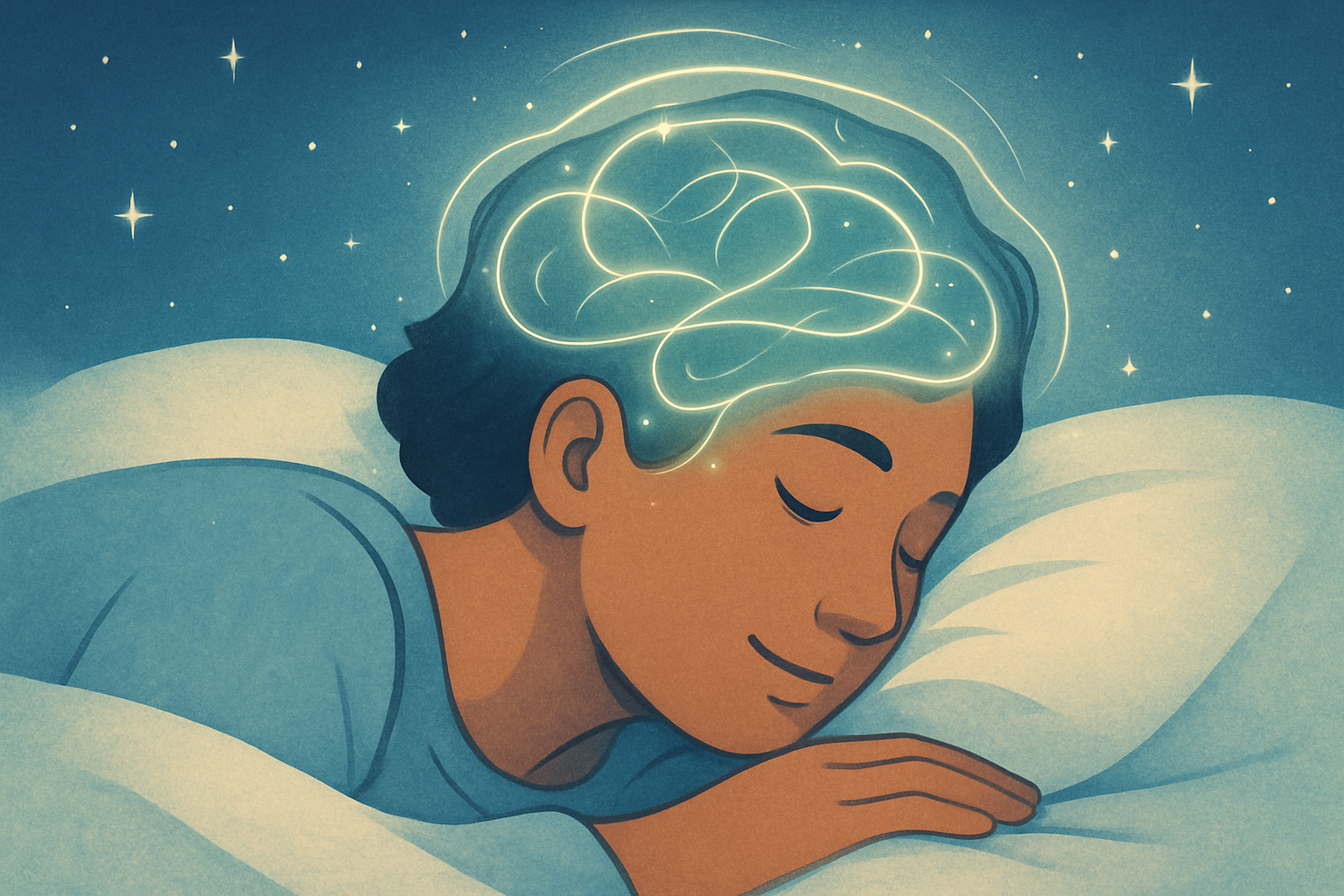
The Power of Sleep: How a Good Night's Rest Boosts Your Brain
Do you ever feel tired, forgetful, or just not quite yourself? The answer might be simpler than you think: sleep! Getting enough good-quality sleep is one of the best things you can do for your brain and your overall well-being.
We often think of sleep as just a time to rest our bodies, but it's so much more. While you're sleeping, your brain is actually very busy, doing important work to keep you healthy and sharp. Let's dive into why sleep is a superpower for your brain.
Why Your Brain Loves Sleep
Think of your brain like a busy office. During the day, it's constantly taking in new information, solving problems, and managing your thoughts and feelings. When you sleep, your brain gets a chance to:
Clean Up: Just like you clean your house, your brain cleans itself during sleep. It gets rid of waste products that build up during the day. One important waste product is beta-amyloid, which is linked to memory problems if too much builds up.
Sort and Store Memories: Have you ever learned something new and then forgotten it? Sleep helps with that! While you sleep, your brain moves new information from a temporary storage area to a more permanent one. This is how memories are made strong and lasting. It's like filing away important papers so you can find them later.
Solve Problems and Be Creative: Sometimes, when you're stuck on a problem, sleeping on it can help. Your brain works on problems and makes new connections while you sleep, which can lead to fresh ideas and solutions when you wake up.
Boost Your Mood: Not enough sleep can make you feel grumpy, stressed, or sad. Good sleep helps balance the chemicals in your brain that control your mood, helping you feel happier and more emotionally stable.
Improve Focus and Attention: When you're well-rested, your brain can pay attention better and focus on tasks. This means you'll be more productive and make fewer mistakes during the day.
How Much Sleep Do You Need?
Most adults need about 7 to 9 hours of sleep each night. Kids and teenagers need even more. It's not just about the number of hours, though; it's also about the quality of your sleep. If you wake up often or your sleep is interrupted, you might not be getting the deep, restful sleep your brain needs.
Simple Tips for Better Sleep
Ready to give your brain the sleep it deserves? Try these easy tips:
Stick to a Schedule: Try to go to bed and wake up around the same time every day, even on weekends. This helps set your body's internal clock.
Create a Relaxing Bedtime Routine: Before bed, do something calm and relaxing. This could be reading a book, taking a warm bath, or listening to quiet music. Avoid screens (phones, tablets, TV) for at least an hour before bed.
Make Your Bedroom Sleep-Friendly: Your bedroom should be dark, quiet, and cool. Block out light with thick curtains, use earplugs if it's noisy, and make sure the temperature is comfortable.
Watch What You Eat and Drink: Try not to have big meals, caffeine, or alcohol close to bedtime. These can make it harder to fall asleep.
Get Some Exercise: Being active during the day can help you sleep better at night. Just try not to exercise too close to bedtime, as it can energize you.
Manage Stress: If stress keeps you awake, try writing down your worries before bed or practicing simple breathing exercises.
Giving your brain the gift of good sleep is one of the most powerful ways to improve your memory, mood, and overall brain health. Start making sleep a priority, and you'll soon feel the amazing benefits!